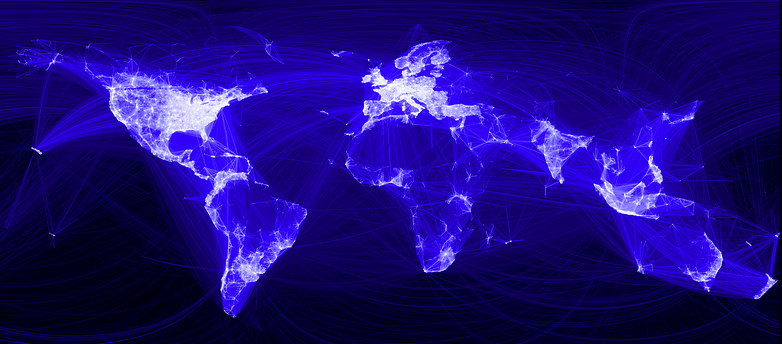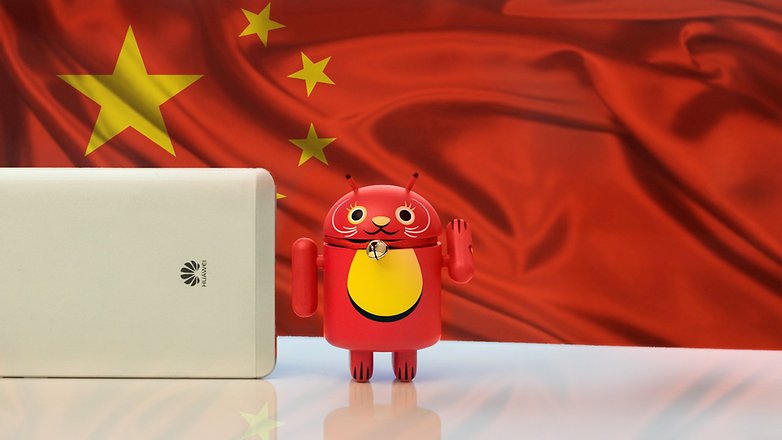Facebook sets itself against China, Russia, all human life
Zuckerberg had no real answer to Graham's question. The Facebook CEO cited other big tech companies such as Google, Apple, Amazon, Microsoft and even Twitter as the main competitors to Facebook. But none of these companies come close to presenting a real alternative to Facebook's main product, the social media site.
Graham, to his credit, realizes this: "If I buy a Ford and it doesn't work well and I don't like it, I can buy a Chevy. If I'm upset with Facebook, what's the equivalent product that I can sign up for?"
Zuckerberg's answer, that Facebook is just one of the eight different apps that the average American uses to communicate, leaves out the fact that Facebook owns four of the eight top communication apps: Facebook, Instagram, WhatsApp and Facebook Messenger. In terms of digital communication, Facebook has no real rival.
In the senate hearing, Zuckerberg joked that it "doesn't feel" like Facebook has a monopoly. It might be because, like with any monopoly, it's convenient to broaden the definition of the market. And in Zuckerberg's mind, this definition may come across as all-encompassing to the point of megalomania...Facebook has put itself in competition with all human activity.
Facebook's enemy is life itself
In an ironic turn of events, an insight into how Mark Zuckerberg sees Facebook comes from when his private information was taken without his explicit consent. At one point during his Senate testimony, Zuckerberg left his notes open on the witness table.
The notes, photographed by AP Washington's Andrew Harnik, had this argument prepped for the monopoly question:"Consumers have lots of choices over how they spend their time."
Competition: "Consumer's have lots of choices over how they spend their time." This market definition is so absurd it positions Facebook as competing against sleep. pic.twitter.com/NkwMLxk30y
— Matt Stoller (@matthewstoller) April 11, 2018
When you make your money from ads, attention IS the economy. Your attention is what Facebook sells. To commercial advertisers. To political propaganda. So, what's Facebook's competitor for your attention? Anything else that could possibly occupy your time.
Well, given this position no wonder Facebook, "doesn't feel" like a monopoly to Zuckerberg. Not while there's literally anything else you can think about. Not when sleep is still a thing.
You might be thinking that serious lawmakers are unlikely to be convinced by this absurd argument. And you'd be right. But despite pressure from consumer advocacy groups, it's unlikely that a strong political will to act against the monopoly will emerge.
Users who don't want to deal with Facebook have no alternative service to choose from
What do you think?
Will we see Facebook break up?
Facebook monopoly issues aren't new, even if the Cambridge Analytica privacy scandal has brought the problem to the public eye once more. But what would a solution look like? Politico advocated breaking up Facebook into smaller entities. Similar action has been proposed against other tech giants such as Google and Apple.
Such a breakup would require a huge amount of political will on behalf of lawmakers and the public, given the amount of money that big tech can funnel into Washington to preserve the integrity of their empires. But American tech companies won't have to try so hard.
Zuckerberg's notes reveal a different angle that Facebook can leverage to save itself. It's about competition, but not about Facebook's competitors. Rather, it's about the rivals to the United States itself.
Zuckerberg leverages fear of competition...with China and Russia
Take another look at Zuckerberg's cheat sheet. On the issue of whether to break up Facebook we see: "US tech companies key asset for America; break up strengthens Chinese companies". It's this that cements that, no matter how often he might pull a naive act, Zuckerberg knows exactly how to pressure the US government on its pain points.

Facebook is a global company, and most of its users (almost 90%) are outside of the US. But it's also an American company, and its surveillance of the citizens of the world is also a US intelligence asset, distasteful as it may be to think about.
Responding to Alaska Republican Senator Dan Sullivan's question about whether Facebook was too powerful, Zuckerberg once again played the China card:
"Well, senator," Zuckerberg responded, "I think most of the time when people talk about our scale, they're referencing that we have two billion people in our community. And I think one of the big questions that we need to think through here is the vast majority of those 2 billion people are outside of the US. And I think that that's something that, to your point, that Americans should be proud of. And when I brought up the Chinese Internet companies, I think that that's a real—a real strategic and competitive threat that, in American technology policy we should be thinking about."

Anyone following mobile tech shouldn't be surprised at this line. The current US administration has already taken action to prevent Huawei from succeeding in the US market. Similarly, when it comes to data, breaking up Facebook could be seen as weakening an American asset, while China makes use of powerful companies like Tencent and Alibaba.
Facebook isn't only threatening the US government with China. Russia's in the mix too. Ironic, but despite Facebook's complete failure to prevent itself being hijacked by a Russian disinformation campaign, Zuckerberg still presents Facebook as the main line of defense against foreign agents, instead of the vulnerability it really is:
"There are people in Russia whose job it is to try to exploit our systems and other internet systems and other systems as well.
"This is an ongoing arms race. As long as there are people sitting in Russia whose job is it to try to interfere in elections around the world, this is going to be an ongoing conflict."
If there's an arms race going on, then Facebook has been selling weapons to both sides in a classic case of war profiteering. Nothing that the US government would usually frown upon, but a definite no-no (to use a legal term) when the US is one of the sides involved in the conflict.
Last week House Energy and Commerce Committee Chairman Greg Walden presented Zuckerberg as an all-American hero: "Your success story is an American success story, embodying values such as freedom of speech and freedom of enterprise."
The United States can lay claim to Facebook as an embodiment of its ideals. Based on what you know about Facebook, you can judge for yourself its suitability for that role. Idealism aside, Facebook is clever enough to position itself as an asset in an international information war.
But this is an alliance of convenience. In its heart of hearts, Facebook listens to its true reason for existence: profit. Our attention. Against any upstart corporation that tries to compete. Against any nation-state, including the US, that threatens it. Against sleep. Against time itself.
Do you think Facebook should be broken up? Or is it in the national interest to keep Facebook strong?
#Google #Android #Smartphones #OS #News @ndrdnws #ndrdnws #AndroidNews
